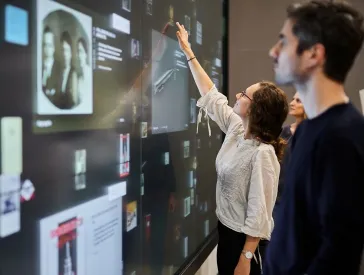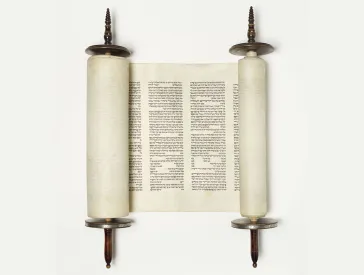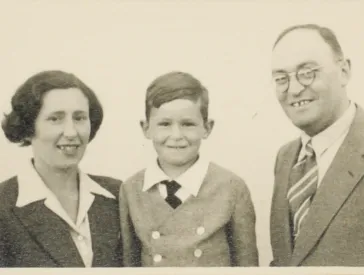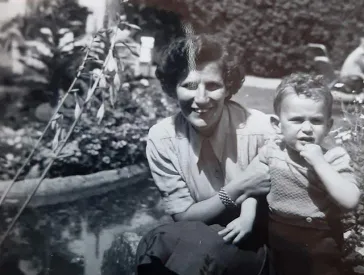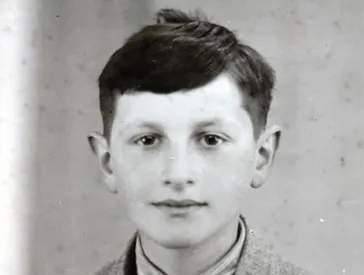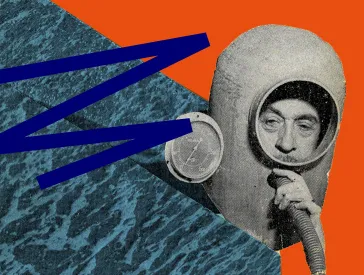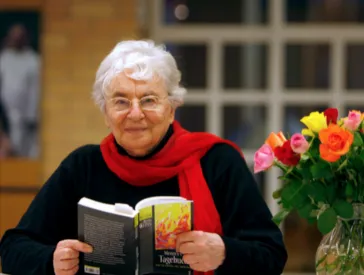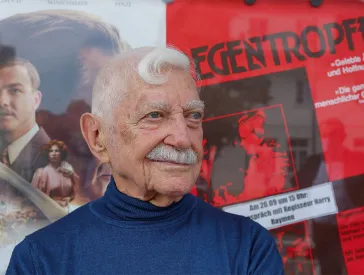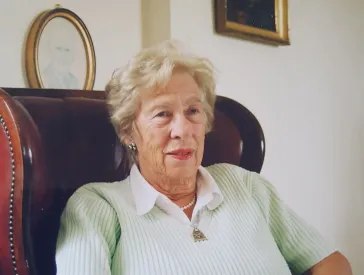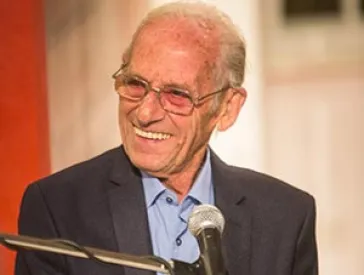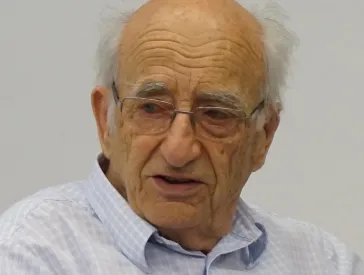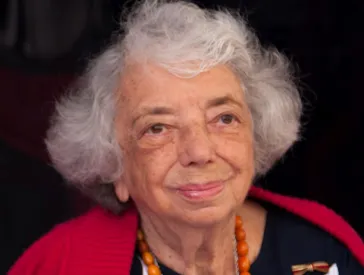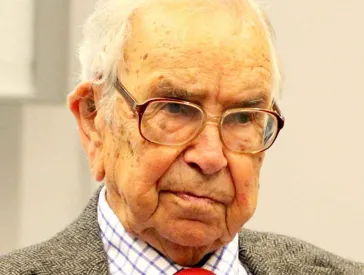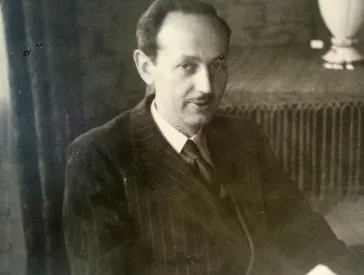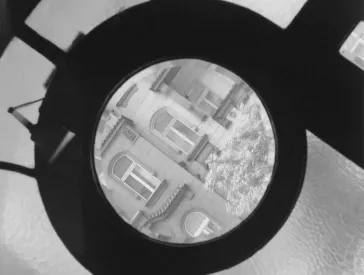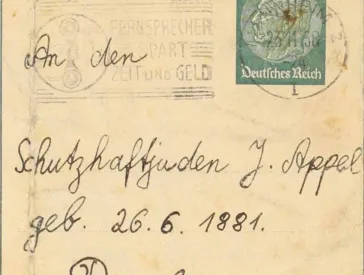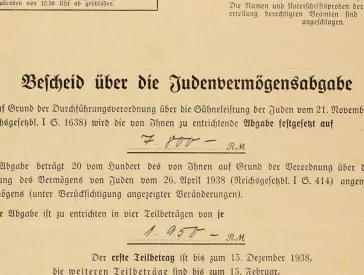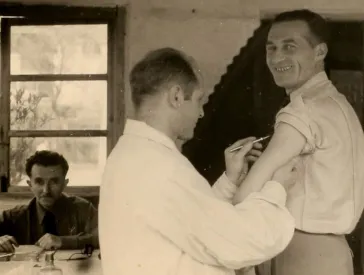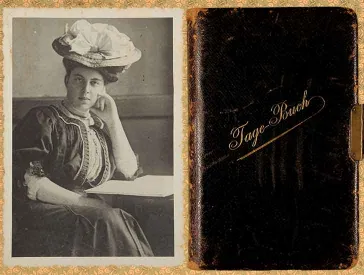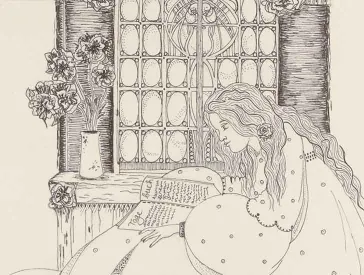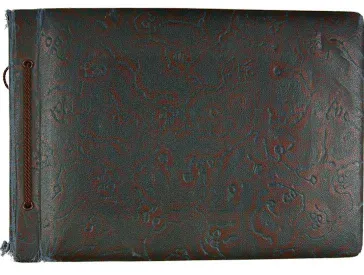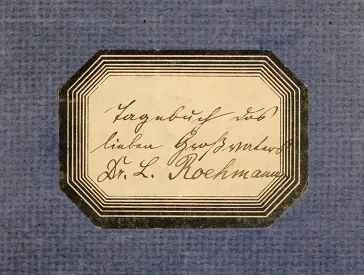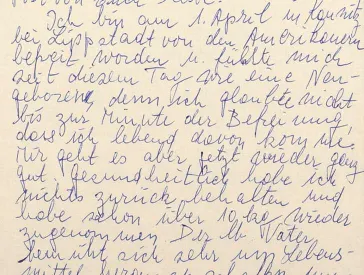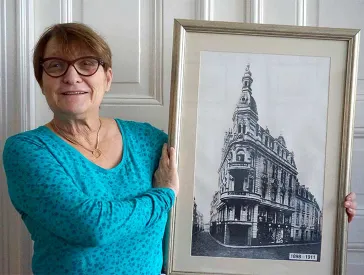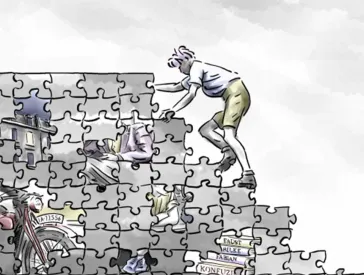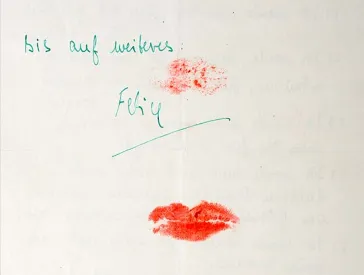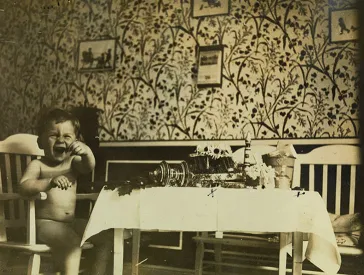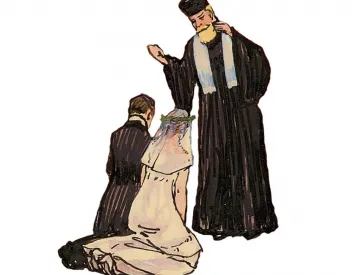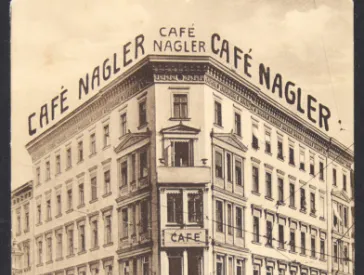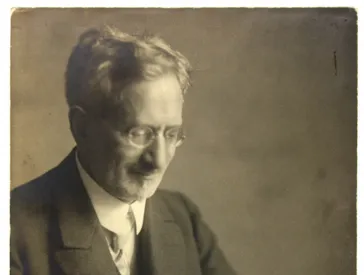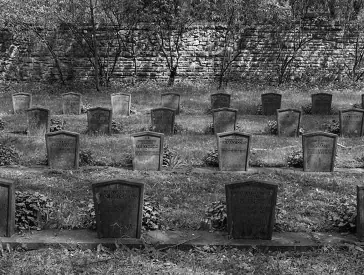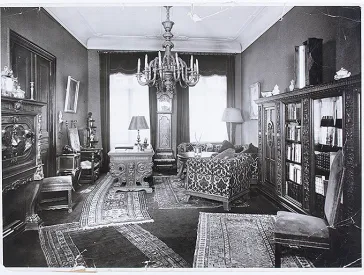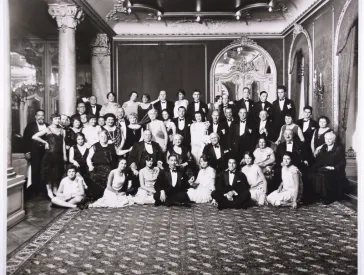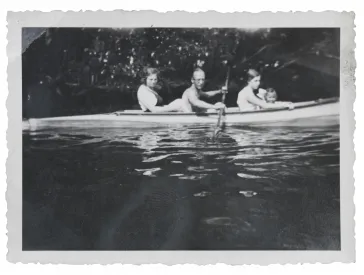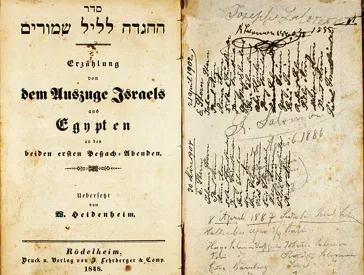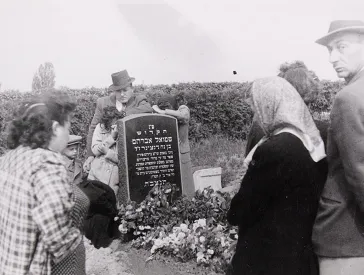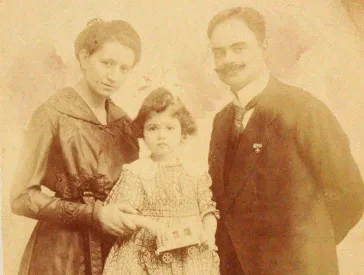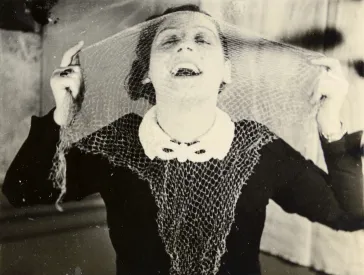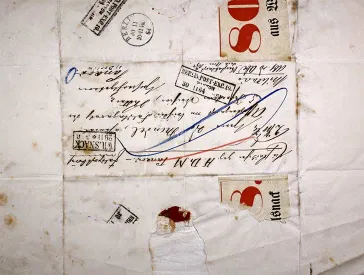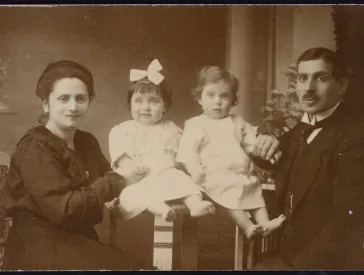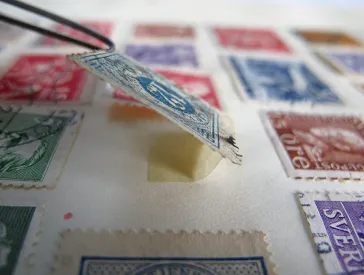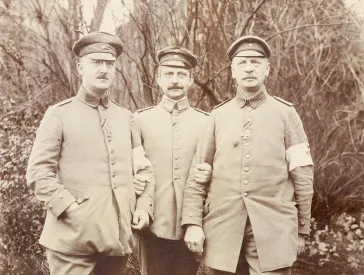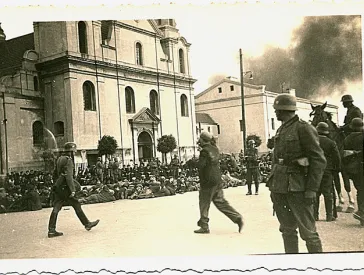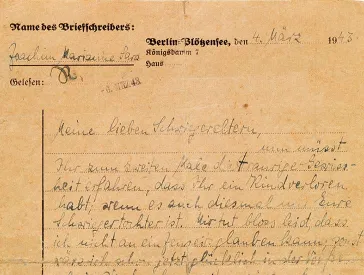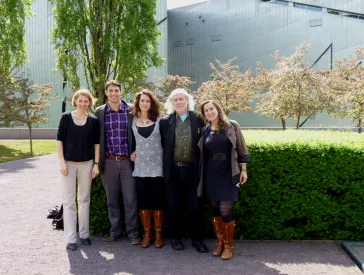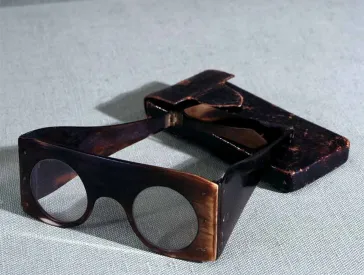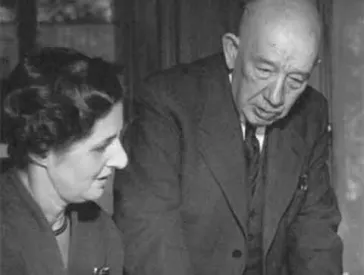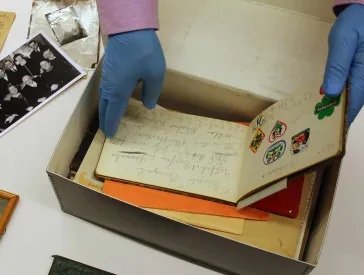
Archive
Documentation of Jewish Life
Our archive consists almost entirely of donations from Jewish individuals and their descendants around the world who were forced to flee Germany during the Nazi era, survived persecution or lived in either of the two German states after the war’s end.
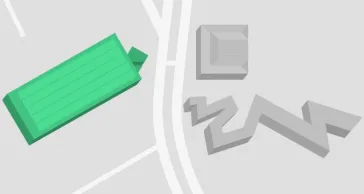
Where
W. M. Blumenthal Academy, Archives
Fromet-und-Moses-Mendelssohn-Platz 1, 10969 Berlin
Postal address: Lindenstraße 9-14, 10969 Berlin
Some of these mixed collections have only a few pages whereas others fill up to 40 archival boxes, encompassing a wide range of materials, from personal documents to school and military certificates, correspondence, memoirs and diaries.
The archive holds documents that relate to everyday life, religious, economic, and professional aspects, as well as the persecution and murder of Jews in Germany, emigration and flight, and the rebuilding of lives in exile. Written material is complemented by photographs and everyday objects, and occasionally by artworks, Judaica and audio-visual materials.
Testament of Veitel Heine Ephraim (1703–1775), Berlin 1774; Jewish Museum Berlin, photo: Jens Ziehe
Extensive testimonies relate to middle class life during the German Empire, participation in the First World War, and life and persecution during the Nazi era. A growing number of documents from the post-war period reflect reconstruction and renewal of communities, life in camps for displaced persons, the return of individuals from exile, and Jewish lives in both halves of a divided Germany, as well as life in reunified Germany after 1989.
Use of the Holdings
All of the archive’s holdings are available in our reading room to interested students, scholars and other researchers. (The Reading Room's opening hours and other information on our website.) The materials are also used intensively in archival workshops, where schoolchildren and university students engage with primary sources to gain insights into various aspects of German-Jewish history.
Other Archive Branches at Our Institution
Our archive also houses a branch of the archive of the Leo Baeck Institute in New York, and a branch of the Wiener Holocaust Library in London. These holdings are accessible in our archive in original or reproduced form.
How can I donate objects, photographs, and documents to the museum?
Do you own materials related to Jewish culture and history in Germany that could be of interest to us? We would be delighted to hear from you!
How can I conduct research using the museum’s archive, collections, and library?
Our Reading Room is open to the public. You can also research using our library’s holdings and some of our collection’s holdings online. To view additional holdings, please contact the responsible curators.
Can the museum help me research my family history?
You may use our in-house holdings for research purposes. We have also compiled a directory of links to research opportunities for personal and family research and genealogy.
I would like to depict or borrow an object from your collections. Who should I contact?
Your contacts for photo permissions are Valeska Wolfgram and Birgit Maurer-Porat (T +49 (0)30 259 93 433, email: fotodoku@jmberlin.de). Please note that the processing time for requests can take between 4 and 6 weeks.
Loan requests must always be made nine months before the beginning of the exhibition. Requests must be made in writing to the director (Hetty Berg, Stiftung Jüdisches Museum Berlin, Lindenstr. 9-14, 10969 Berlin).
Contact
Aubrey Pomerance
Head of Archives/Leo Baeck Institute
T +49 (0)30 259 93 556
a.pomerance@jmberlin.de
- Address
Jewish Museum Berlin
Lindenstraße 9–14
10969 Berlin
Event Series: Eyewitness Talks (17)
Online Features: The Background and Ramifications of 9 November 1938 (5)
Behind the Scenes: Anecdotes and Exciting Finds while Working with our Collection (29)

Our Collection
An overview
- The objects we collect: information & FAQ
- Search our collection: a growing number of items from our digitized collection are available to view and search online (in German)
Details
- Current page: Archive: documenting Jewish life
- Audiovisual Media: historic sound recordings, family films and video art
- Library: books and more about Jewish art, culture, and history
- Fine Arts: visual culture of German-Jewish history and the present day
- Photography: from the beginnings of photography to the present day
- The Jewish Object: Material Culture: objects and textiles for nonreligious purposes
- The Jewish Object: Applied Arts: objects produced by German-Jewish craftspeople and companies
- The Jewish Object: Judaica: ritual and everyday items for religious purposes
Digital Content
- Online Showcase: digital presentation of our collection holdings, video projects, and more
- Object in Showcase: stories from our collection
See also
- The History of Our Collection: learn about the initial inspiration and transition to today's museum
- Our Collection Management: Protection, preservation, and documentation
- Sources of Collection Holdings: in publications of the Berlin museum (1978 to 1995)
- Provenance Research: unveiling the origins of our objects
- Conservation: how to presperve our objects for future generations
